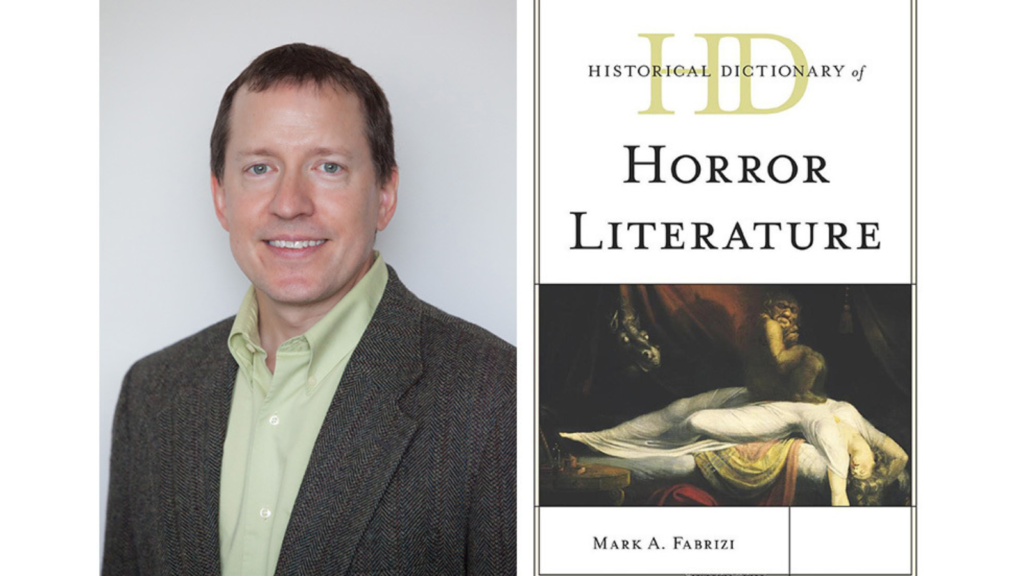
WILLIMANTIC, CT — Wolfmen, witches, vampires and zombies loom in tales told by humans for more than 6,000 years. That history is chronicled in a new book by a professor from West Henrietta teaching in Connecticut titled “Historical Dictionary of Horror Literature.”
“I’ve always been interested in horror,” said Mark Fabrizi, professor of education at at Eastern Connecticut State University, who first wrote about horror literature in a paper he presented at a 1996 conference at the University of Maine where the keynote speaker was author Stephen King. Fabrizi wrote a book about the horror and fantasy genres in 2018 and contributed to an earlier dictionary of the history of fantasy literature. The publisher, Rowman & Littlefield, asked him to add to its series of historical dictionaries with one on horror literature.
Eva Glaser, a junior from Sturbridge, Mass., majoring in English and secondary education, assisted Fabrizi with biographical research on authors of horror tales, including names you would expect – King, Edgar Allan Poe, Shirley Jackson – but some surprises, too, such as Louisa May Alcott, who published her first horror novel under the pseudonym A.M. Barnard.
The dictionary goes as far back as about 4,000 BCE, to ancient Sumerian myths about a demon who was part ghost, part vampire and part zombie.
Horror stories have been powerful influencers. People read accounts of witches and witchcraft and cleaned up their own communities, burning and hanging thousands of suspects. In 1854, Fabrizi wrote, residents of Jewett City, CT, believing that vampires lived among them, exhumed recently buried bodies and burned them. In nearby Hopeville, a section of Griswold, 29 bodies were exhumed. One had its skull removed and the body was reburied face down with femur bones crossed over the chest, wrote Fabrizi.
And how does he sleep at night, after compiling these stories of horror throughout history?
“Horror is actually good for you,” he said. Sweaty palms and fright can purge negative emotions and relieve stress, he said.
The dictionary is not exhaustive, he admits, but he is already planning a second edition. The 370-page book is a reference that will be useful for libraries and academics who study horror literature, he said.
Horror literature is more widely studied in England, where he earned his Ph.D. at the University of Hull and wrote a dissertation on using fantasy literature to develop critical literacy skills in students. But even there, he said, an English Tolkien scholar told him the genre was a literary stepchild. Still, publishers say that horror is an incredibly popular genre and it is starting to get more attention from scholars, he added.
Fabrizi will teach a new course, “Wizards, Witches and Warriors,” in spring 2025. He also recently published the second edition of his book, “Writing a Watertight Thesis” (Bloomsbury Press, 2023).

